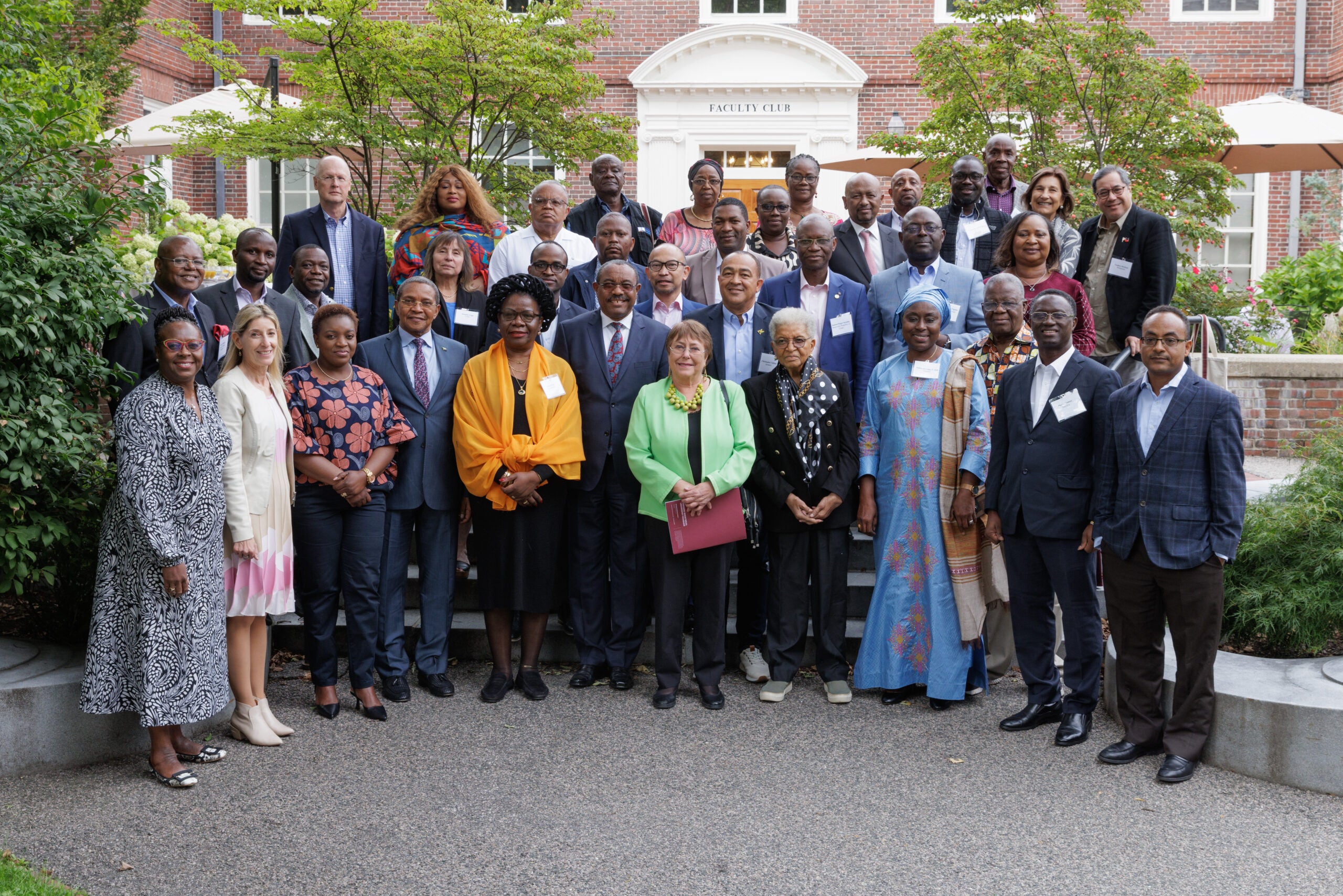Twenty-one government Ministers with human development responsibilities, like health education, agriculture, youth, and gender gathered at Harvard for the 20th Harvard Ministerial Forum in mid-September. Mostly from Africa, but also including Caribbean and Southeast Asian countries, this most recent cohort joins the 281 Ministers who have been part of the Ministerial Program since its launch in 2012.
A singular feature of the Harvard Ministerial Forums is that they are led by a distinguished group of former heads of government, as well as former and long-serving government Ministers from around the world. This fact makes the strenuous 13-hour, four-day program an invaluable practically based learning experience for the incumbent Ministers. All developing countries, but African countries more acutely than most, are experiencing post-COVID political, economic, and social consequences compounded by current global economic and geopolitical circumstances. Citizens’ dissatisfaction with their governments is palpable, fueled by governments’ limited response to their needs because of severe fiscal constraints resulting from high levels of indebtedness and tepid economic growth.
Against this backdrop, Ministers participating in the September Forum were encouraged to cultivate empathetic leadership, ensure they identify and prioritize policy goals that have the most potential to benefit the most people, and perhaps most importantly deliver on their government’s commitments. The constraint on fiscal reserves puts more emphasis on the importance for Ministers to work collaboratively across government – jointly setting priorities, pooling available budgets, and coordinating implementation.
Through ongoing virtual engagement with Ministers and their senior leadership teams, the Harvard Ministerial Leadership Program will endeavor to support implementation of the goals and delivery plans Ministers mapped during their time at Harvard. While the overwhelming majority of Ministers who have participated in the Program ascribe pivotal benefits to their work while in government, the Program continues to look for more objective measures of the Program’s tangible impact on policy outcomes.


